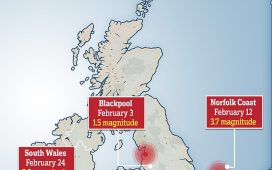[ad_1]
The Osiris-Rex craft landed on the asteroid Bennu, hundreds of millions of miles from Earth, and used its robotic arm to kick up a cloud of debris and collect rocks.
Nasa has since solved the issue, sealing the probe and setting its return to Earth.
The space agency sent commands to disconnect the two mechanical parts of the robotic arm; it first cut a tube that carried nitrogen gas, and then separated the collector head from the arm itself, Nasa said.
The spacecraft then closed the Sample Return Capsule and fastened its two internal latches.
“I’ve officially closed the Sample Return Capsule! The sample of Bennu is sealed inside and ready for our voyage back to Earth. The SRC will touch down in the Utah desert on 24 September, 2023. Thanks, everyone, for being a part of my journey”, an account set up for the craft tweeted.
“We are here to announce today that we’ve successfully completed that operation,” said Rich Burns, the mission’s project manager, during a press conference.
However, Nasa is unsure about how much material remains in the craft. Based on images of the robotic arm and the collector, the mission operators are confident they have at least 400 grams of material.
Since the photos only show 17 per cent of what the collector is carrying, according to The Verge, it is estimated that there are over a kilogram of asteroid sample heading back to Earth.
“Even though we have lost sample as a result of the mylar flap being wedged open, we are confident, I am confident, and this team is confident that we still have hundreds of grams of sample that we plan to bring back to the Earth,” Dante Lauretta, principal investigator of the Osiris Rex mission, said.
Osiris Rex landed on Bennu for just a few seconds, but is not expected to leave its vicinity until March.
It will return to Earth in September 2023, seven years after its launch in 2016.
It is the first US sample of pristine asteroid materials. Japan is the only other country to have accomplished such a feat.
Asteroids are among the leftover debris from the solar system’s formation over 4.5 billion years ago, and samples collected could reveal secrets about the origins of life on Earth.
[ad_2]
READ SOURCE





